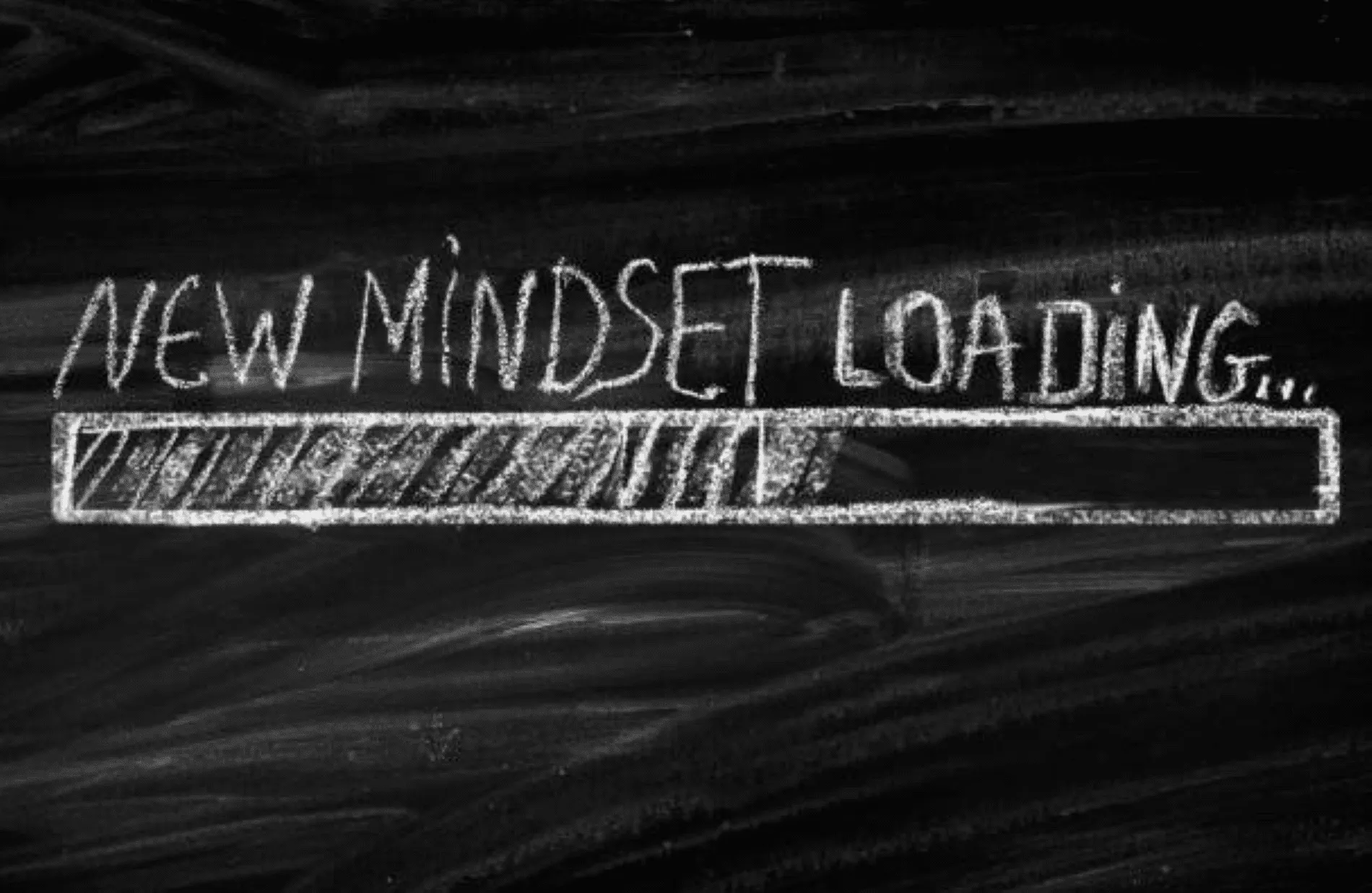How Behavioral Assessments Empower Personal Growth

Author: Tyesia Hunter
The Role of Behavioral Assessments
in Personal Growth
Behavioral assessments have often been lauded as a powerful tool for fostering personal growth. You might be wondering, 'What exactly is this tool and how can it aid in personal development?' Well, it's time to demystify behavioral assessments and explore their important role in our lives. It begins with understanding.
Every behavior we exhibit, from our work habits to social interactions, carries a wealth of information about who we are - our strengths, weaknesses, motivations, and potential growth areas. Behavioral assessments are structured evaluations that tap into this rich source of information to paint an accurate picture of our behavioral tendencies.
This information goes beyond the surface-level personality traits. It delves deep into the core aspects of your behavior that influence your actions and reactions.
For instance, psychometric testing is one form of behavioral assessment that measures an individual's mental capabilities and behavioral style. This data acts as a blueprint for understanding why you do what you do.
But how does all this connect with personal growth? The answer lies in self-awareness - one of the vital pillars of personal development.
Knowledge obtained from these assessments gives us valuable insights into ourselves which we may not have previously been aware of. Imagine having access to an evaluation that can tell you where your leadership skills stand or how effectively you handle stress or conflict - wouldn't that be empowering?
This is exactly what functional behavioral assessment offers; its purpose ranges from identifying problematic behaviors to providing techniques for managing them effectively. Through these evaluations like the functional assessment or a developmental-focused evaluation (behavioral assessment for development), you can identify areas where improvement is needed and create targeted strategies for change.
Imagine being able to tailor-make your own path toward success because now you know better about yourself than before! The role of such assessments doesn't stop at self-improvement alone though; they are equally instrumental in enhancing interpersonal relations too!
Whether it's within a family setting or professional environment like leadership roles (behavioral assessment for leadership), understanding your own as well as others' behavioral patterns can immensely improve the quality of interactions and mutual respect. In essence, behavioral assessments provide a clear, reflective mirror that helps you see yourself from a new perspective.
They allow you to take control over your personal growth journey by equipping you with the right knowledge about your behavior. So, the next time you come across an opportunity to get a behavioral assessment done - remember its potential power to push you towards becoming your best self!
What Are Behavioral Assessments?
Often when we contemplate things like personal growth, we stumble upon the term 'behavioral assessments'. But what exactly are these?
In essence, behavioral assessments are diagnostic instruments used by psychologists to understand human behavior. These are akin to a stethoscope that lets the cardiologist hear your heart's rhythm and measure its health.
Similarly, behavioral assessments help unpack our intricate behavior patterns. They can range from formal procedures such as functional behavioral assessments that analyze why specific behaviors occur, to informal observations or interviews.
These tools aren't just for clinicians or psychotherapists. They're also widely used in business and personal development contexts.
Behavioral assessment for development is very common in corporate settings where companies want to cultivate strong leaders or productive teams. Behavioral assessment for leadership is designed specifically to evaluate a person's potential or propensity for leadership roles based on their behavioral characteristics.
On top of that, these evaluations often make use of psychometric testing – a scientific method used to measure individuals' mental capabilities and behavioral styles. It’s not uncommon for HR departments in companies across the globe to use them during recruitment processes – though their application goes far beyond this context.
In the realm of personal growth, these tests can be an invaluable tool by providing insights into one's personality traits, aptitudes, or weaknesses that might otherwise remain hidden beneath our conscious awareness. By understanding ourselves better through a functional behavioral assessment or other forms of evaluation, we open up endless possibilities for change and improvement - ultimately empowering our personal growth journey!
Gaining Insight into Your Behavior
Delving into the realm of behavioral assessments, we discover a key component that unlocks our understanding of ourselves - gaining insight into our behavior. At its core, this process is much like embarking on an expedition to unravel the mysteries of your own personality and behavioral tendencies. It's a journey to understand who you are, how you act in various situations, and why.
Consider psychometric testing for instance. This form of behavioral assessment is like using a magnifying glass to examine the intricate patterns within your personality.
It elevates our self-awareness by highlighting elements in our character that often remain concealed from our conscious understanding. More often than not, it brings to light surprising facets about your behavior which can be both enlightening and transformative for personal growth.
Now imagine using these insights in everyday scenarios - say at work or during discussions with friends or family. You'd be armed with knowledge about why certain situations make you feel uncomfortable or why you resonate more with certain people over others.
This newfound awareness can not only help you navigate challenging situations but also augment your interpersonal skills leading to better relationships. Let's take this idea further and talk about leadership potential.
Any leadership role calls for an exceptional understanding of one's own behaviors and the ability to manage them effectively in response to different stimuli or challenges. Behavioral assessment for leadership can provide this vital information thus enabling leaders to channel their strengths strategically while being cognizant of their areas for development.
All in all, gaining insight into your behavior through assessments carries significant relevance for personal growth. It's akin to having a roadmap that lays down areas where you excel and those where there is room for improvement - information pivotal for both personal development as well as achieving success in various spheres of life.
Improved Self-Management
Understanding our behavior is the first step toward being able to manage it effectively. This is where behavioral assessments for development come into play. They allow us to gauge our reactions and responses, providing an accurate mirror of how we handle different situations.
It's like having a psychological blueprint of ourselves, complete with strengths, weaknesses, and all the nuances in between. Psychometric testing takes this understanding a notch higher.
These tests offer comprehensive insights into our personality traits, cognitive abilities, and behavioral patterns. When applied in a self-management context, they are incredibly powerful - helping us make connections between our behaviors and the outcomes of those behaviors.
Harnessing this knowledge empowers us to take charge of personal growth by enabling informed decision-making. For instance, if your behavioral assessment reveals that you're an introvert who thrives in quiet environments over bustling ones, you can leverage this insight to carve out suitable workspaces or select roles that accommodate your disposition.
On the other hand, such assessments might reveal not-so-flattering aspects about ourselves; perhaps we are not as patient or as assertive as we thought we were. Here again, lies an opportunity for growth - acknowledging these areas provides a starting point for improvement efforts.
Utilizing behavioral assessments for leadership has proven particularly beneficial in this regard. Leaders who understand their behavior can tailor their management style to be more effective - they know when to push their teams and when to pull back; they can strike the right balance between being assertive and accommodating; they can foster healthier team dynamics conducive to productivity and success.
In essence, self-management is all about gaining control over one’s choices – how one reacts or responds – and working towards improved performance not just professionally but personally too! And if there's one tool that gives you the key to unlock this potential – it’s undoubtedly Behavioral Assessments.
Utilizing Behavioral Assessments for Personal Growth
Behavioral assessments play a crucial role in personal growth. They serve as mirrors, reflecting our patterns and behaviors that we might otherwise overlook.
The results of these assessments can be game-changing, allowing us to identify our strengths and weaknesses, improve self-awareness, and align our actions with personal aspirations. It's akin to getting a user manual for ourselves that details what makes us tick, how we respond to stressors or challenges, and how we interact with others.
Through psychometric testing, a type of behavioral assessment often used in leadership development programs, individuals can gain insights into their leadership style. This functional behavioral assessment provides valuable data that is critical in shaping effective leaders.
It profiles an individual's decision-making abilities, team engagement strategies, and conflict resolution tactics among others – all essential components of effective leadership. A notable benefit of using behavioral assessments for development is the capacity to unearth underlying behaviors contributing to personal or professional stagnation.
Many times it isn't just about acquiring new skills but unlearning old ones that have become counterproductive. In this regard, behavioral assessments act as powerful catalysts for change.
Moreover, the utilization of behavioral assessments extends beyond honing leadership skills. They are instrumental in fostering self-improvement on multiple fronts by revealing personality traits or habitual patterns detrimental to progress in various life aspects – career growth potential being one example.
To sum it up succinctly: understanding oneself is the first step towards personal growth - a journey made significantly easier with the aid of comprehensive tools such as behavioral assessments. Combining this newfound awareness with dedicated action can set you on an empowering path toward genuine transformation and achievement.
The Connection Between Behavioral Assessments
and Success
To understand the intricate link between success and behavioral assessments, it's crucial to understand that success, both personal and professional, is not solely reliant on skills or knowledge. It's our behaviors - how we interact with others, cope with pressure, and react to challenges - that often determine our level of achievement. The beauty of behavioral assessments is that they provide a clear lens through which we can observe these behaviors objectively.
Take for instance the concept of a functional behavioral assessment. This goes beyond merely understanding what you do; it delves into why you do what you do.
It explores your motivations, ideals, potential stress reactions, and more. Imagine being able to preemptively ascertain how individuals are likely to behave in unique circumstances!
This kind of incisive awareness can significantly shape your path toward success. Now let’s consider behavioral assessments in a leadership context.
A leader’s effectiveness hinges on their ability to inspire and motivate their team members towards common objectives while ensuring harmonious relationships within the group. Behavioral assessment for leadership helps leaders understand their behavior patterns better – like how they tend to communicate or make decisions – contributing positively towards team dynamics and overall organizational performance.
Yet importantly, we should not overlook the role of psychometric testing within this discussion. Psychometric tests objectively measure traits such as aptitude, personality characteristics, attitudes, and beliefs – essentially aspects that are difficult to ascertain from interviews or resumes alone but have a significant bearing on an individual’s success trajectory.
In essence, by conducting behavioral assessments for development purposes – whether it be in a personal growth context or within an organizational setting - one can identify areas for improvement while also highlighting strengths. : whether it be improving self-awareness; enhancing interactions with others; or facilitating more effective decision-making processes; behavioral assessments offer evidence-based insights that can empower individuals to achieve greater heights of personal growth and professional success.
Overcoming Common Misconceptions
In the labyrinth of personal growth, behavioral assessments often face a series of misconceptions. One widespread notion is that these tools pigeonhole people into rigid categories, which couldn't be farther from the truth. On the contrary, behavioral assessments offer nuanced insights that form a dynamic and multi-dimensional picture of an individual's behavior profile.
They don’t confine you to a box but rather give you the keys to understanding what that box is made up of and how it influences your actions and reactions. Moreover, people often mistake behavioral assessments for absolute predictors of success or failure.
It's crucial to note that while these tools can provide profound insights, they are not crystal balls foretelling your destiny. They're more like road maps—guiding you through your strengths and weaknesses without determining where you end up.
Just because a behavioral assessment may indicate a predisposition toward leadership doesn’t necessarily mean one will make a great leader—that’s where development comes into play. Another common misconception is that psychometric testing is only beneficial in professional settings for leadership assessment or team bonding activities.
While they do hold substantial value in such scenarios—especially when trying to develop leadership capabilities—they also have considerable applicability in personal spaces for fostering self-awareness and enabling personal growth. Further misleading belief suggests functional behavioral assessment as something intimidating or unnecessarily complex—a sentiment primarily stemming from a lack of understanding about its purpose and process.
In reality, though sophisticated in their design—these tests are straightforward in their implementation with the objective being empowerment—not judgment. Thus, by dispelling these myths about behavioral assessments, we allow ourselves to fully embrace their power as catalysts for personal growth and development.
Conclusion
It's clear that behavioral assessments hold significant value in our journey toward personal growth. They are tools that allow us to hold a magnifying glass up against our own behaviors and characteristics, highlighting areas of strength and illuminating those requiring improvement. By affording us such introspective insights, these assessments allow us to take proactive steps toward self-improvement.
Psychometric testing is a powerful tool within the realm of behavioral assessments. This form of evaluation helps individuals understand their personality traits better by providing in-depth, scientifically validated insights into their behavior.
It serves as a crucial bridge between the abstract world of psychology and the tangible outcomes we strive for in personal growth. As we navigate the seas of self-improvement, let's remember that no assessment can define us completely - we are ever-evolving beings with boundless potential for growth and adaptation.
But what functional behavioral assessment can surely do is provide guideposts along the way to highlight where we are presently positioned on our journey toward becoming more effective leaders or developers. The final takeaway?
Embrace behavioral assessment for leadership and development as your compass on this expedition called life; it offers direction when paths seem unclear, provides answers when questions abound, and invariably catalyzes personal evolution. So here's to embracing personal growth through the insightful tool of behavioral assessments – may they inspire you to continually aspire for betterment, progress confidently toward your goals, and unlock your fullest potential.






